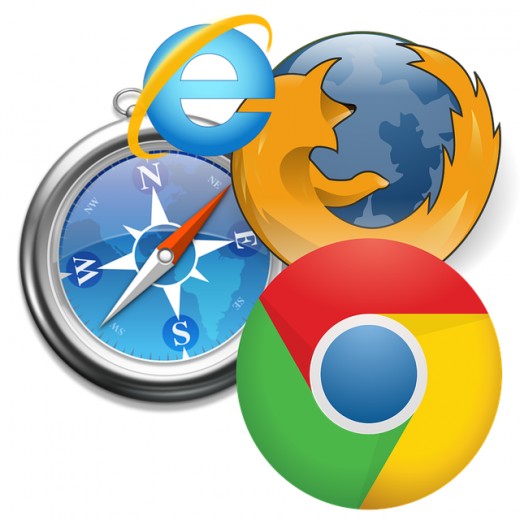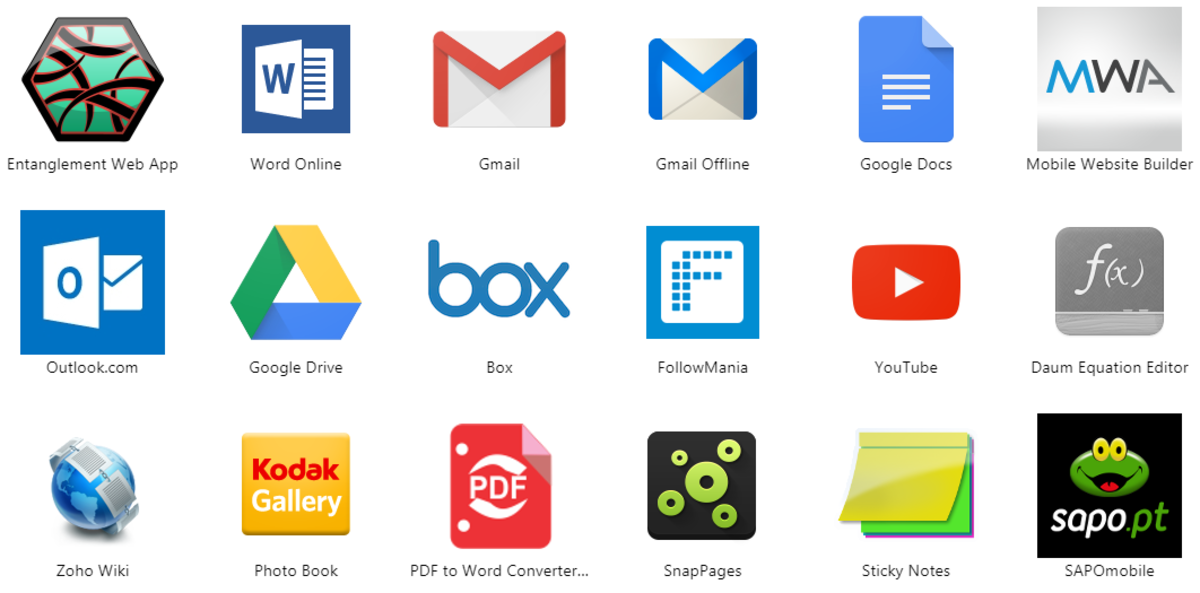Secure Your Browsers For Safe Browsing
Have you ever faced such terrible situations where your PC or Laptop gets infected with nasty viruses leaving no choice except reformat and install a fresh system again? And in that process, you may end up losing some important files and folders which cannot be recovered? Isn't it quite frustrating?
Of course, it happens with many internet users who normally perform their online activities without taking proper security measures, especially browsing through unsecured browsers.
While surfing the internet you never know when the hidden malicious codes, viruses or any such harmful malware will strike your machine to steal the valuable data. Once entered into your machine, they can steal data, delete files, and even take complete control of your system to ask you a hefty ransom. So, it is important to use highly secured web browsers to keep the viruses away from your machines.

Why You Need to Secure Your Web Browsers?
The importance of cyber security can be understood from one of the recent incidents that shook the corporates as well as individual computer users around the world. Yes, the WannaCry ransomware attack on this year April 2017 was so massive that it has affected more than 2,00,000 machines across 150 countries around the globe. There were individual, various institutions and government agencies who became victims of that massive cyber extortion. Many of them have paid hefty ransom amount to the blackmailers to get back their locked data, while some lost their crucial data forever.
Later it is discovered that although the Wannacry ransomware virus can enter into your machine in many ways, one of the potential entry is through the unsecured or weak browsers. So, it is important to take necessary security measures by adopting most secure browsers.

Not only the WannaCry ransomware attack, there are many such dangerous viruses and malware surfacing over the internet. They are continuously pushing hard to enter into your system. They just need one weak point where they can hit and enter into your machine to do the nuisance. A week or unsecured browser is enough for them to enter into your system without any hindrance.
There are many viruses specially built to attack browsers. One of such dirty virus called “Fireball”, which is also on attacking spree since past couple of months across the world. As per the latest reports, the Fireball malware has already infected at least 250 million machines globally. The worst victims of this nasty virus are from India and Brazil among the other affected countries.

How Fireball Malware Takes Control of Your Browsers
According to the Check Point Threat Intelligence and Research team, it is a Chinese malware commanded by a Beijing-based large digital marketing agency called Rafotech. They use this nasty virus to control the victim’s internet browsers. Once the virus infected your machine, it will take charge of the browsers and converts the default search engines into a fake search engine. So, whenever you search anything it redirects to either Google.com or Yahoo.com through their fake search engine.
There are tracking pixels to collect the private data using the fake search engines. This virus can spy, runs malicious codes and manipulates web traffic to generate advertisements revenue for their creators.
Not only that, this virus has the ability to run malicious codes on your machine and even downloads any file or malware by its own without your knowledge. It installs malicious plug-ins and additional configurations to increase its advertisements revenue.

How to Secure Your Web Browsers?
The inventors of the browsers are working hard to tackle all such security warnings by continuously enhancing the security features of each new version. But as a user, we also have the certain responsibility to safeguard our own data and machines. And for that, there are few easy steps which we can do from our end to ensure our browser's security.
It is important to know whether the machine is infected because without knowing the problem we cannot think of any solutions. So how can we ensure that your machine is not yet infected with these nasty viruses? Let’s see some normal steps as prescribed by Checkpoint security firm to know whether you are the victim of Fireball virus.
Let’s see some common steps as guided by Checkpoint security firm to know whether your machine is infected by Fireball virus.
- Start your browser one by one and check all the default settings such as homepage, search engine, browser extensions and installed plug-ins
- Make sure that the search engines, homepage and other settings which you have chosen earlier is still there and no unexpected changes appeared
- Try to modify the homepage, search engines and observe whether you are able to change. In case you are not able to replace them, then you are the victim of this Fireball virus
- If you found any unknown plug-ins or extensions then try to uninstall them quickly.
- Also, take the help of some good anti-malware, adware cleaner software to perform a complete scanning to ensure you are safe from this virus. And initiate the cleaning process for regular checkups in short intervals
Some Best Secure Web Browsers
There are some popular browsers like Chrome, Firefox, IE, Safari etc.available in the market. The makers of these browsers are continuously working hard to make their browsers safer against the most common viruses and malware. Most of them provide the option of privacy mode which can allow you to browse the internet without being tracked by any website.
But most of these popular browsers have many default addons and plugins which can be exposed to outside attacks some times. So, it will be good if your browser has minimum essential features without the unnecessary add-ons and plugins,
Let us discuss some of the best web browsers which can provide you secure surfing experience by protecting your privacy.

EPIC Privacy Browser
Epic is a free browser with minimum features which is enough for your internet surfing. It looks like the popular chrome browser but with maximum privacy. There is no tracking of your online activities, even the cookies and trackers are cannot stay on your computer after the session, they get eliminated after each session.
And there is proxy service with epic, which can be used just by clicking a button on the browser itself. Using the proxy service you can hide your IP address and location from the trackers. But the only disadvantage is that the proxy service can make your browsing experience a bit slower.
Yandex Browser
Yandex is another secure browser looks like Google Chrome in its design and interface, It is fast, secure and free to use with some exceptionally good features such as Turbo Mode which will speed up the page loading time, actively checking and scanning the contents for malicious content.
This browser provides DNS spoofing protection, that means it can block fraudulent web pages containing malicious contents. Also, protects your bank details, card details from online hackers while doing online shopping or any other transactions.The Yandex browser is faster and safer for your financial transactions. You can carry out all such activities without fearing the hackers.

Comodo Ice Dragon Browser
The Comodo Ice Dragon browser is based on Firefox browser in its interface and designs while the Dragon browser is based on Chromium. So both the browsers are compatible with both Chrome and Firefox respectively.
It provides privacy and security through its SecureDNS servers, also you have the option to hide your ISP using proxy servers. It also requires the users to install its own antivirus software "Comodo Internet Security (CIS)", however both browser and the antivirus software are free to use. The best thing about the Comodo browser is that it is compatible with both chrome and firefox. Also, it has its own antivirus software to safeguard you further.
Conclusion
There are other such secure web browsers available in the market which can safeguard your online privacy from many security breach incidents. The browsers like "Brave"- an open source browser developed by Brendan Eich the co-founder of the Mozilla Project can be used as alternate to Safari and Chrome. Similarly, the browsers like Tor and Dooble also protect your data.
Finally, surfing the internet is not same as it is used to be earlier. Nowadays everybody should keep themselves alert of various cyber incidents and need to take appropriate actions to counter the attacks before it strikes. The use of secure web browsers is one of the strong preventioon mesaures to protect your machine from such threats.
Do you like to choose a Browser on its security features?
© 2017 Kishor Mohanty








